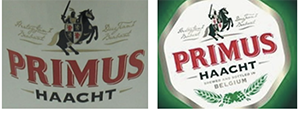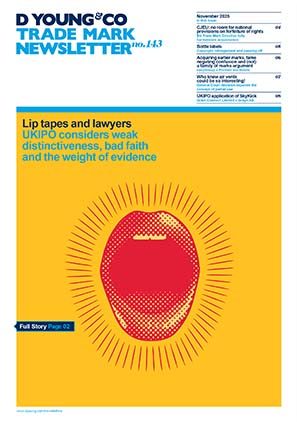PRIMUS: Novomatic AG and EUIPO v Brouwerij Haacht NV
Novomatic applied to register the mark PRIMUS in class 28 for goods including gaming apparatus, amusement machines and slot machines. Haacht opposed the application under Articles 8(1)(b) and 8(5) on the basis of earlier Benelux and EU registrations for PRIMUS covering non-alcoholic drinks, beers and wines.
Having been rejected at first instance, the Board of Appeal annulled the decision of the opposition division, agreeing that there was no confusion for the purposes of Article 8(1)(b), but finding a reputation, so that Article 8(5) was successful. This is the appeal by the applicant to the General Court.
Evidence
For Article 8(5), the criteria to be satisfied are:
- The signs are identical or similar.
- The earlier mark has a reputation.
- There is proof that use of the proposed trade mark without due cause would take unfair advantage of, or be detrimental to, the distinctive character or the repute of the earlier mark.
Looking at the signs, clearly they are identical. The applicant contended that the evidence did not refer to the correct trade mark, but to a different form of the mark, but it was found that the below forms of use were acceptable as the additional elements did not alter the distinctive character of the mark PRIMUS.

Having established that the PRIMUS mark had been used, the court went on to consider the proof of reputation.
We know that evidence of reputation has to be dated prior to the filing date of the application, but the court reconfirmed that documents dated after the filing date can be useful if they help conclusions to be reached concerning the position as it would have been on the filing date. Undated documents can also be taken into account if such documents support other evidence that has been filed.
The evidence referred to Belgium specifically and was considered sufficient to show a level of reputation even without market share and sales figures. Of note, although prices had been redacted from the invoices filed, owing to the number of invoices dated over a period of ten years, the invoices were taken into account to support the evidence of use over this period.
Photographs of different public houses and other premises that had PRIMUS on the facades in a number of different towns and therefore across a significant geographical area was significant in supporting the well-known status in Belgium, as was a survey that looked at the awareness of the earlier marks as well as sponsorship, showing investment, and awards.
In relation to the risk that use of the mark applied for would without due course take unfair advantage of or be detrimental to the distinctive character or reputation of the earlier mark, as we know, the degree of similarity between the respective marks has to be only such that a link is established. In considering whether or not any such link has been established, factors to be taken into account include the relevant public, the nature of the goods or services and any similarity, the reputation of the earlier mark and the level of distinctive character.
- The relevant territory for the public was Belgium as the reputation had been established there. The consumer for the gaming equipment would be a professional public whereas the consumer for beers is the average consumer and the professional public who buy the beers to offer in their establishments. The relevant public therefore overlaps in relation to the professional group whose attention tends to be high.
- The court pointed out that there is a difference in nature between the respective goods, lager beer on the one hand and gaming machines on the other hand. However, case law has already established a similarity between entertainment services and beer; the venue offering beer often features gaming equipment or other amusements and they are considered complementary. Consequently, there is a link between the goods.
- Bearing in mind the above, together with the facts that the signs are identical and a reputation had been established which in itself means that the earlier mark had at least established a normal level of distinctive character, the court concluded there is a risk that the public will associate the marks.
The applicant did not put forward any evidence to show due cause and the appeal was dismissed.
One take home from this decision is that it is possible to show a reputation without market share and sales figures, if evidence is carefully considered and reflects a practical understanding of the relevant market(s).
Case details at a glance
Jurisdiction: European Union
Decision level: General Court
Parties: Novomatic AG (applicant) v European Union Intellectual Property Office (EUIPO) (defendant)
Date: 09 September 2020
Citation: T‑669/19
Full decision (T-669/19)
Read more
